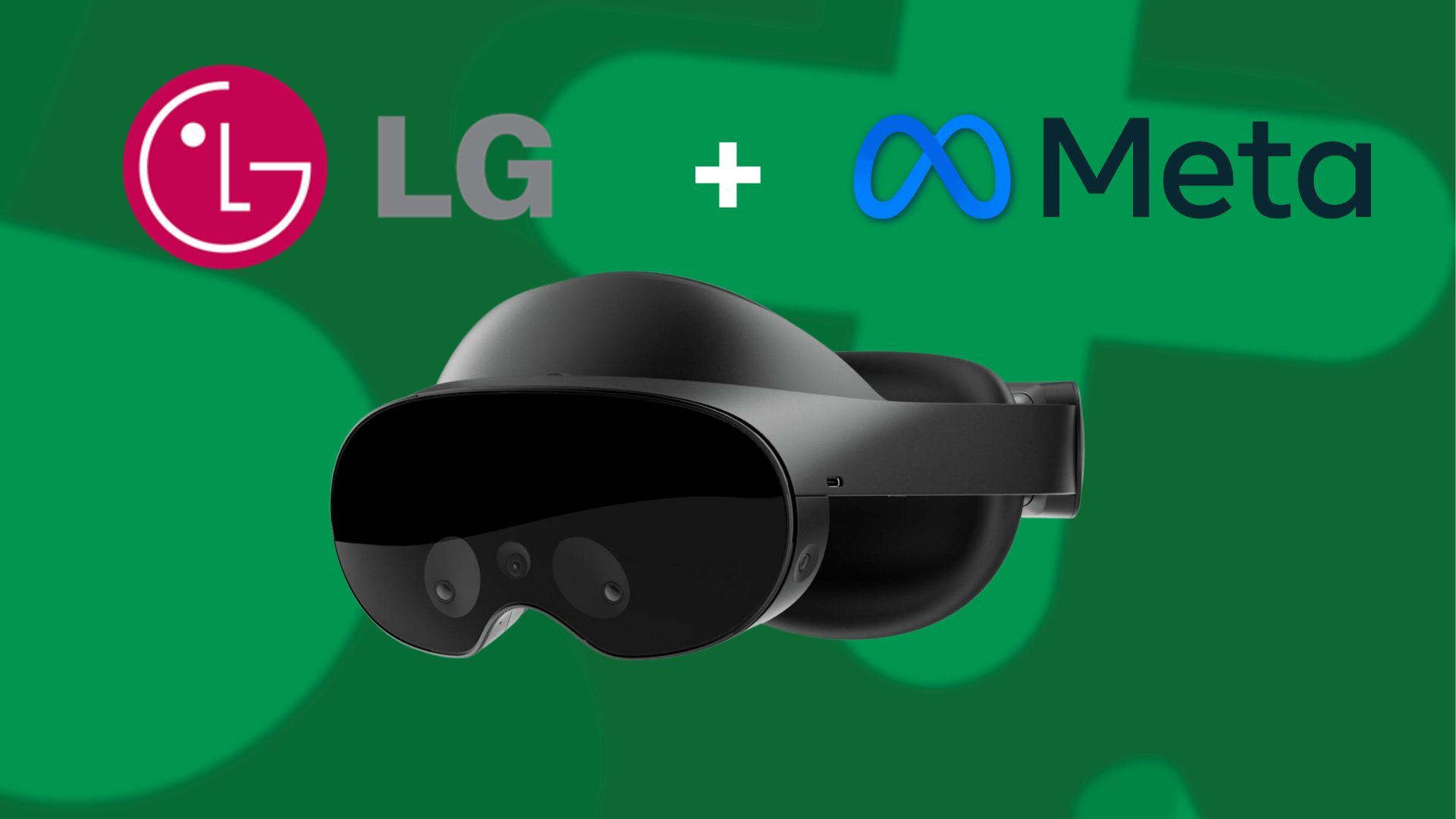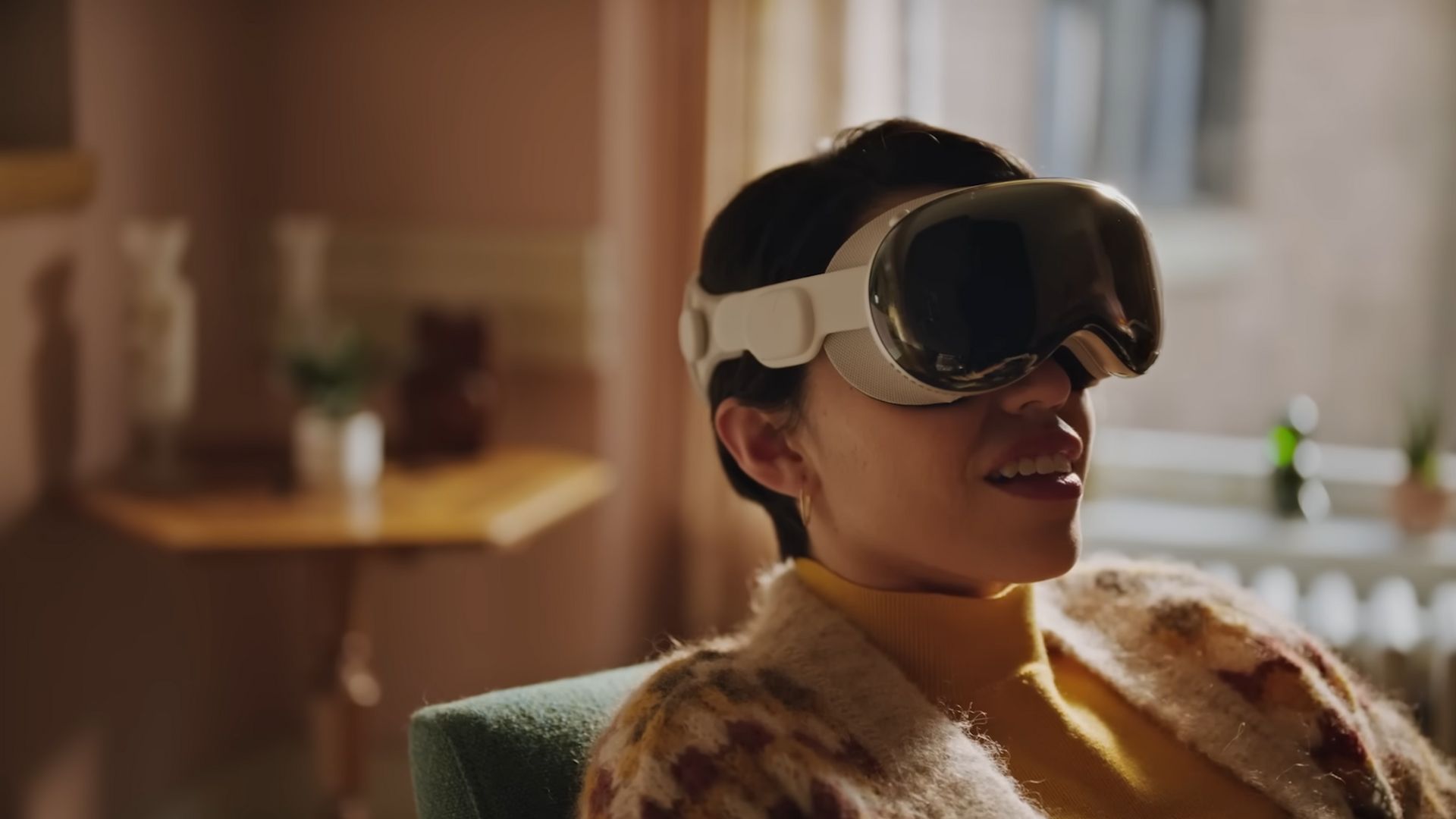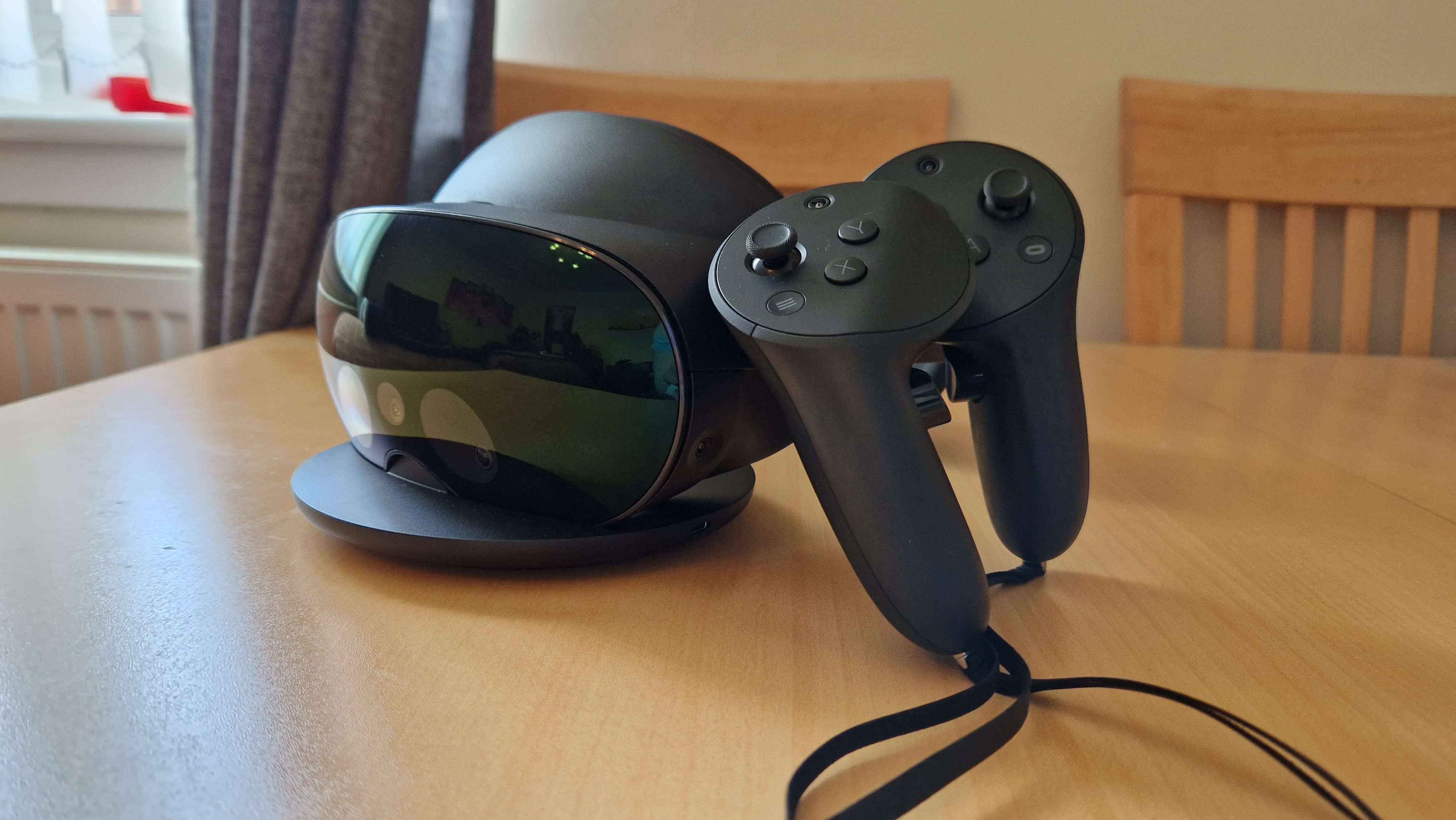LG's OLED tech is amazing, but it won't make me want a Quest Pro 2
Is there space in the market for another premium VR headset?

Reports circled this week that Meta and LG would be collaborating on a future mixed-reality headset, and the other day Meta confirmed the news. While we don't have confirmation of what the end product will be, most are assuming it's the Meta Quest Pro 2.
While getting a company with the OLED prowess of LG to make a premium VR headset is intriguing, I honestly couldn't be less interested.
The Meta Quest Pro took a big swing and a miss at our best VR headset list, losing out for its expensive cost, dreadful battery life, and oodles of privacy concerns. While the reception of the headset was pretty dire across the board, you could argue that it paved the way for Apple to capitalize on its misgivings with a premium headset of its own.
The Apple Vision Pro has now launched in the US, and although it caters to more of a "spatial computing" market than a direct gaming one, it has the wider VR market and a mainstream Apple crowd completely hooked. It's certainly had a better reception from the off than the Meta Quest Pro. Of course, the Vision Pro's bubble of launch excitement has already begun to burst, because while it seems like an innovative and trend-setting device, it is prohibitively expensive for the majority of people.

Paying over $3.5 grand for a first-of-its-kind mixed-reality device is not something most people can do on a whim. In fact, most tech journalists and pundits have said the device feels like a toe in the water - a test for a much more affordable version at some point down the line. In other words, Apple is merely experimenting with a small market of consumers, purposefully limiting its own risk in case its first foray into this technology doesn't work out. The plan would seem to hinge on opening things up to the mainstream with a cheaper version later.
Apple is the sort of luxury technology brand that can get away with that kind of tactic because it has built up that trust and reputation over the years. It has fans who are willing to defend a $3,500 device until they're blue in the face - even if they can't afford to buy it. Meta, Facebook, and Mark Zuckerberg are not brands that have built up the same level of good faith. Personally, if they plan to put out another premium headset to compete with the Apple Vision Pro, I don't see a way that doesn't end in tears.
The Meta Quest 3 has been competing in its own right. It offers a mainstream, more affordable alternative to Apple's ski mask while offering slightly downgraded features. Moreover, it appeals to the established standalone VR gaming market that exists from the Quest 2. Surely, if anything, Zuckerberg should be recognizing that that's the market to keep wrapped around his finger - especially when going after the premium business crowd has proven such a failure for Meta previously.
Weekly digests, tales from the communities you love, and more

It's not just Meta that's fallen short of that market, either. HTC's Vive XR Elite failed to capture the Metaversal buzz, and that's a company that's already established a solid following from PCVR devices like the HTC Vive Pro 2. To me, that says that the high-end audiences aren't really interested in standalone goggles that cost an arm and a leg - perhaps that audience doesn't exist at all, and let's face it, anyone who does fall into that category will probably already have bought an Apple Vision Pro.
As far as LG's involvement goes, I can't imagine they'll be drafted in for anything more than OLED technology. LG supplies its OLED expertise to so many devices these days because it's one of the leading manufacturers of that type of panel. This would certainly be a feather in the Quest Pro 2's cap because OLED displays in PSVR 2 and the Apple Vision Pro do outclass Meta currently. If you combine the Pancake lenses of the Quest Pro and Quest 3 with an OLED display, you will undoubtedly get a brilliant result, but if it isn't priced correctly, what's the point?
Who knows what the future may hold for Meta's Quest devices? Could this LG collaboration be for something new entirely? I for one would be a lot more interested in a PC-dedicated VR headset from Meta, especially since there's a growing gap for those devices in the current market.
Want to prepare for PC VR gaming? Check out the best gaming PC, the best graphics cards, and the best RAM for gaming.
One of my earliest memories is playing SuperMario64 and wondering why the controller I held had three grips, but I only had two hands. Ever since I've been in love with video games and their technology. After graduating from Edinburgh Napier University with a degree in Journalism, I contributed to the Scottish Games Network and completed an Editorial Internship at Expert Reviews. Over the last decade, I’ve been managing my own YouTube channel about my love of games too. These days, I'm one of the resident hardware nerds at GamesRadar+, and I take the lead on our coverage of gaming PCs, VR, controllers, gaming chairs, and content creation gear. Now, I better stop myself here before I get talking about my favourite games like HUNT: Showdown, Dishonored, and Towerfall Ascension.


